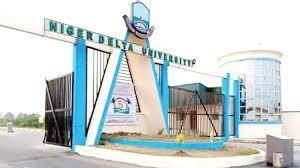
ASUU Strike: We Have Lost So Much, Who Will Compensate Us? – Students:
Nigerian students have received with mixed feelings the news of the suspension of the strike. UNIBEN SUG Chairman, Mr. Osasere Osifo said: “It is good that the strike has been called off, but I am not necessarily jumping for joy about it, because we have already lost so much. Who will compensate us for the six months that we have lost? As for the results of the strike, only time will tell whether the sector will be better for it. ASUU said that they were fighting for our good, so now we will watch more closely to see how the results of the strike will benefit the sector and Nigerian students as a whole.”
A year two Computer Engineering student of the University of Lagos, Uche Oragui, said he didn’t loose anything but, rather, gained more knowledge and skills.
“I thank God the strike is almost over and I’m glad I was able to use the period to study and develop myself by taking a course on web development. I know once we resume on January 4th, we’ll start with tests and continuous assessments while exams would commence on January 26. But I’m not scared because I’m very much academically prepared for whatever may come up.”
For a final year student of the University of Ibadan who declined to give his name, time lost can never be regained, especially when trying to cover up for five months of study.
“Though it’s hard to cover up for lost time, and with resumption, lecturers would want to rush up and this would affect understanding, but I thank God I used the period to study beyond by course of study so as to prepare myself and be more knowledgeable.”
For Chinedu Nicholas, a student of LASU, “I placed my books at the sideline because anytime I picked up those materials to read, I realised I was talking to myself. I had to drop those books because it’s kind of funny going crazy in my room reading with no platform for delivery. Besides this, I lost time which I can never regain.”
For Folashade Dairo, a student of University of Lagos, reading was never on her agenda as she busied herself with house chores and television.
“To cover up, I’ll just have to read extra hard by burning the midnight candle and make sure I don’t miss any lecture”, Folashade said.
Similar Posts:
In agreement is another student of LASU, Garuna Kanyinsinuola, who said “seriously, I’ve lost almost everything if not everything. You can imagine six months at home without books, knowing fully well that you are one leg out, one leg in because it keeps coming 2 you that you are still an undergraduate.
“Well, to cover up, I’ll have to start from the scratch, which is going to be hard, but it’s a matter of determination and hard work on my part. You have to decide what you even after ASUU has thrown this at us. Failure would just be using ASUU as an excuse and we’ve come too far from where we’ve started from to fail.”
ASUU strike was the greatest struggle of the year—ERC
Speaking to Vanguard, the National Coordinator of the Education Rights Campaign, ERC, Mr. Hassan Soweto, said the strike has been the greatest struggle of the year.
“We congratulate the members and leadership of ASUU for this victory. Most especially we congratulate ASUU for showing exemplary perseverance, courage and determination while the strike lasted. This victory is an inspiration to students, youth and the working masses that struggle pays. But vigilance must be maintained to ensure that this agreement is implemented and the promised funds are not looted.
“No doubt, the ASUU strike is the greatest struggle of the year 2013. But as students prepare to return to campuses by January 2014, they must also be prepared to mobilize to reclaim their students unions and NANS from the pro-government cabal that has taken them over. We need a NANS that can fight courageously like ASUU for the interest of its members.
“Victory of ASUU is merely a dress rehearsal for bigger battles to save public education. To start with, the 2009 agreement still remains largely unimplemented. Also, the N200bn released is still too little if one dispassionately considers the terrible crisis of decayed facilities and infrastructures afflicting our public universities. This notwithstanding, if the N200bn is judiciously utilised, there is reason to hope that a little of the problem can at least be solved. But even this can only be possible with democratic control and management of the education sector.”
Source: Vanguard

